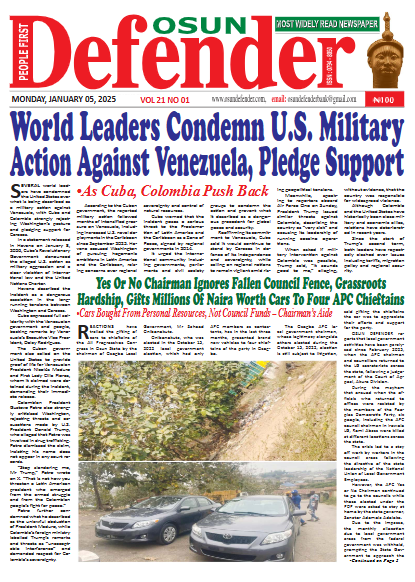FG Launches New Security Outfit To Tackle Illegal Mining

The Federal Government on Thursday commissioned the Mines Marshals, a paramilitary squad.
It was gathered that the Minister of Solid Minerals Development, Dele Alake, launched the Marshals at an event in Abuja on Thursday.
Alake explained that the squad was formed from a unit of the Nigerian Security and Civil Defense Corps (NSCDC) to tackle the menace of illegal mining in the country.
Alake explained further that the unit would also curb the smuggling of solid minerals from the country to foreign nations.
Recall that the minister said on Tuesday that no mining license would be issued to prospective investors without the requisite plans for value addition to minerals.
In a statement by his Special Assistant on Media, Segun Tomori, Alake said the federal government had resolved to ensure compliance before permitting investors to operate.
He said that his seven-point agenda for the ministry had placed the mining sector on the global front burner since assuming office, which had generated renewed interest from the international community in Nigeria’s mineral resources.
He said the support of the executive and the legislature had enabled the ministry to showcase the solid minerals sector globally, resulting in his election as the Chairman of the Africa Minerals Strategy Group (AMSG) at the Future Minerals Forum in Riyadh, Saudi Arabia.
According to him, with the pact that led to the formation of the AMSG, there is now unity of purpose on the African continent regarding the issue of local value addition.
He said: “We are no longer going to allow anybody or license any company that wants to go into the mineral sector without giving us a plan for local value addition, like processing, refining, and this has a multiplier effect on the economy.
“It instantly generates employment rather than a few people carting away lithium, gold, and the like to other countries to sell.
“These minerals must now be processed in Nigeria, creating more value and beneficiation for the local communities where they are sourced.”

Sodiq Lawal is a passionate and dedicated journalist with a knack for uncovering captivating stories in the bustling metropolis of Osun State and Nigeria at large. He has a versatile reporting style, covering a wide range of topics, from politics , campus, and social issues to arts and culture, seeking impact in all facets of the society.









